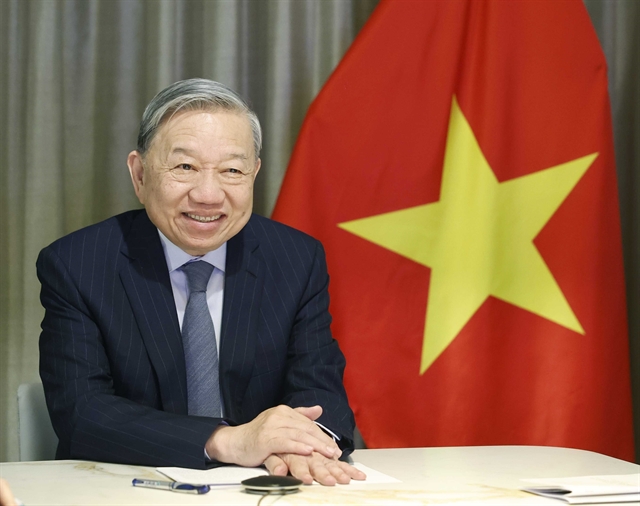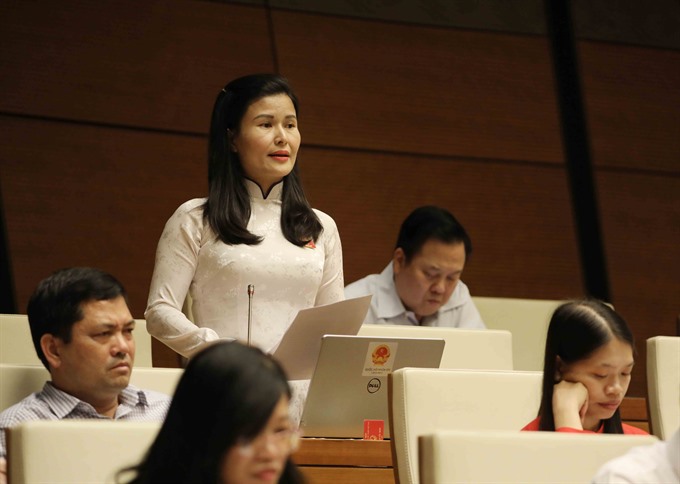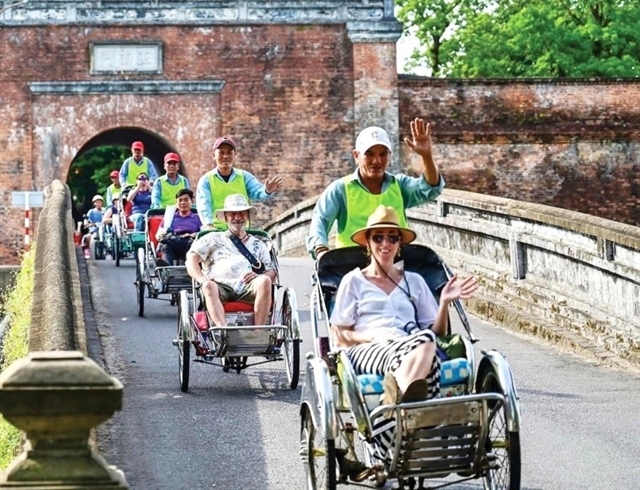 Politics & Law
Politics & Law

Viet Nam has carried out 7 mass paroles during the last 10 years with over 87,000 convicts released early, of which 50,000 were reported to have successfully reinhabited in society and able to find employment, said a report presented to the National Assembly yesterday during a meeting in Hà Nội,
 |
| A deputy debates changes made in education law during an NA meeting on Monday in Hà Nội. -- VNS/VNA Photo Phương Hoa |
HÀ NỘI -- Viet Nam has carried out seven mass amnesties during the last 10 years with more than 87,000 convicts released early, of which 50,000 were reported to have successfully reintegrated into society and found employment, stated a report presented to the National Assembly during a meeting in Hà Nội on Monday.
Deputy Trần Thị Hiền said it is necessary to distinguish between the amended Laws on Amnesty and the country’s general policies on clemency. She advised amnesty laws should be designed to make sure individuals who are truly deserving are included and short listed for early release.
A convict must serve at least half or two-thirds of his or her sentence, and convicts with life sentences must serve at least 16 years to be eligible for parole reviews.
Convicts with corruption charges must return their illicit gains before being considered for amnesty. In handling parole for foreign convicts serving time in Việt Nam, international and bilateral treaties in which Việt Nam is a signatory will be used as a guideline.
Lawmakers also mentioned a common misunderstanding that the country’s mass parole is a by-product of its overloaded prisons and the need to involve the people’s supervision in the parole process.
A majority of deputies voiced their support for a framework in which mass paroles are carried out during the country’s major events and holidays, a practice employed by the State.
Minister of public security Tô Lâm said the country’s amended Laws on Amnesty will reflect the spirit of the 2013 Constitution and the result of a process of collecting feedback and opinions from people from all walks of life as well as various Government agencies and civilian organisations.
The amended version of the law will continue to be reviewed and be presented to the NA during the next meeting.
In the afternoon, the NA discussed the amended Laws on Education. Tuition fees for students in pedagogical universities, quality teaching and training for teachers, and investment in the field of education were the main focus of the amended law.
The country’s education law gives a clear objective for its education sector: to equip young Vietnamese with knowledge and ethical qualities, and to encourage students to reach their full potential and to prepare them for international integration.
Deputy Ngô Thị Kim Yến, however, pointed out that Vietnamese students still have many shortcomings despite their positive academic performance.
Yến noted that Vietnamese students often lack soft skills, real-life experience and are limited in their ability to communicate in foreign languages.
Another issue deputies said must be addressed is the fact that there may be more than one, or in some cases too many textbooks used for the teaching of one subject. While it is a welcome change that schools are now able to choose their own textbooks there is a large gap in price between them. In some cases, certain textbooks are ten times more expensive than their alternatives.
Deputy Thạch Phước Bình said a large number of public schools prove to be a constant strain on the State’s budget. He suggested the Government reduce this figure and focus only on those that train students for jobs which are in high-demand by the country. -- VNS




